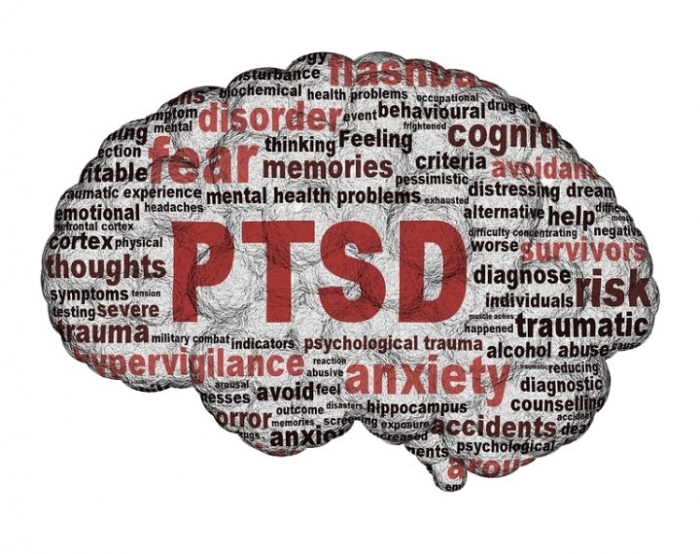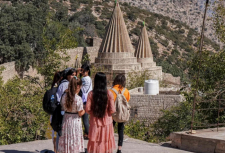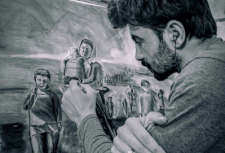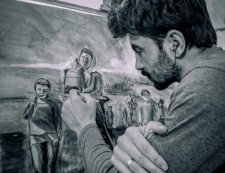A Study of Psychological Problem in Yazidi Children and Adolescents

The present study aimed to study the psychological problems of displaced Yazidi children who had settled in Dohuk City (2016 - 2017). To this end and based on specific cultural characteristics of the participants as well a son the targeted age group and number of participants required for the PSC checklist, 100 children and adolescents were selected, of whom 49 participated in the study. The findings show that psychological problems are common in participants, with 65% of them scoring higher than the cut-off line. Our findings are in line with the results of relevant literature on displaced and refugee children and adolescents. Many reports on the prevalence of psychological symptoms among refugee children have been published by several researchers.
After the invasion of the ISIS in different Iraqi cities, Sinjar in northern Iraq, wherein a minority Yazidi group lived, was the focus of the heaviest of the attacks for ideological reasons. The effect of gender on psychological problems wasn’t significant in this study, but in internalizing disorder (which includes anxiety and depression), females scored higher than males. Previous studies have reported the prevalence of psychological problems in females, whether in refugees or in the public. Most of the studies reported higher prevalence of psychological disorders, especially depression, in females (18). In almost half of studies devoted to children, psychological disorders (especially depression) are more common in females than in males (14). In a study on the outbreak of depression and post-traumatic stress in Yazidi refugees, it turned out that women and girls experienced higher stress and scored higher on depression tests.
Hereby, we would like to thank all children and adolescents who participated in the study, as well as the authorities of Khanaki Camp. We would like to thank Dr. Turkan Akkaya Kalayci for guidance in this study. Last but not the least, we feel indebted to all people who aided us during this study.
Writers - Seyedeh Behnaz Hosseini and Pegah A.M. Seidi
Tags: #yazidisinfo #newsyazidi #aboutyazidi #humanrights #yazidi #genocideyazidi
A Study of Psychological Problem in Yazidi Children and Adolescents

The present study aimed to study the psychological problems of displaced Yazidi children who had settled in Dohuk City (2016 - 2017). To this end and based on specific cultural characteristics of the participants as well a son the targeted age group and number of participants required for the PSC checklist, 100 children and adolescents were selected, of whom 49 participated in the study. The findings show that psychological problems are common in participants, with 65% of them scoring higher than the cut-off line. Our findings are in line with the results of relevant literature on displaced and refugee children and adolescents. Many reports on the prevalence of psychological symptoms among refugee children have been published by several researchers.
After the invasion of the ISIS in different Iraqi cities, Sinjar in northern Iraq, wherein a minority Yazidi group lived, was the focus of the heaviest of the attacks for ideological reasons. The effect of gender on psychological problems wasn’t significant in this study, but in internalizing disorder (which includes anxiety and depression), females scored higher than males. Previous studies have reported the prevalence of psychological problems in females, whether in refugees or in the public. Most of the studies reported higher prevalence of psychological disorders, especially depression, in females (18). In almost half of studies devoted to children, psychological disorders (especially depression) are more common in females than in males (14). In a study on the outbreak of depression and post-traumatic stress in Yazidi refugees, it turned out that women and girls experienced higher stress and scored higher on depression tests.
Hereby, we would like to thank all children and adolescents who participated in the study, as well as the authorities of Khanaki Camp. We would like to thank Dr. Turkan Akkaya Kalayci for guidance in this study. Last but not the least, we feel indebted to all people who aided us during this study.
Writers - Seyedeh Behnaz Hosseini and Pegah A.M. Seidi
Tags: #yazidisinfo #newsyazidi #aboutyazidi #humanrights #yazidi #genocideyazidi


























